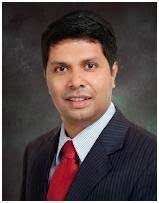Realizing Visible Light Communication for Future Wireless Systems: A Machine Learning Approach
As a well recognized disruptive technology, visible light communication (VLC) delivers high data rates and improved security to be actively considered for many new indoor and outdoor applications in future wireless communication systems. Over the years, VLC system modeling, analysis and implementation have been an active research field enriched with multiple seminal developments reported in the literature. More recently, data-driven machine learning techniques have emerged to revolutionize conventional communication system design and optimization. In this talk, we will discuss how such machine learning techniques can be effectively applied for the design and optimization of VLC systems including examples taken from spatial modulation in VLC, simultaneous lightwave and power transfer (SLIPT) and intelligent reflective surface aided VLC systems.
Date and Time
Location
Hosts
Registration
-
 Add Event to Calendar
Add Event to Calendar
Loading virtual attendance info...
Speakers
 Himal A. Suraweera
Himal A. Suraweera
Biography:
Himal A. Suraweera received the B.Sc. Eng. (Hons.) degree from University of Peradeniya, Sri Lanka, in 2001, and the Ph.D. degree from Monash University, Australia, in 2007. He is currently a Senior Lecturer with the Department of Electrical and Electronic Engineering, University of Peradeniya.
He was a recipient of the 2017 IEEE ComSoc Leonard G. Abraham Prize, the IEEE ComSoc Asia-Pacific Outstanding Young Researcher Award in 2011, the WCSP Best Paper Award in 2013, and the SigTelCom Best Paper Award in 2017. He served as an Editor of the IEEE Transactions on Wireless Communications (2014-2019), IEEE Transactions on Green Communications and Networking (2017-2021) and IEEE Communications Letters (2010-2015). Currently, he is serving as an Editor of the IEEE Transactions on Communications and the IEEE Open Journal of the Communications Society.
His research interests include cooperative relay networks, full-duplex wireless techniques, multiple-input multiple-output systems, energy-efficient wireless communications, visible light communication, and machine learning.

